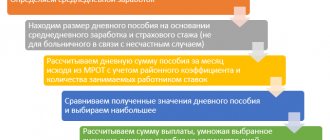Some people, having become entrepreneurs, sometimes wonder whether an individual entrepreneur can work in another organization with a work book. It turns out that you can freely combine your own business with official employment, with the exception of certain cases. You can do business if you have free time from your main place of work. However, it is worth taking into account that not all areas allow the possibility of combining employment with running a business.
Law on opening an individual entrepreneur
Becoming an individual entrepreneur is not a problem for anyone today. Thus, limitless opportunities open up for especially active citizens, full of ideas and energy. At the same time, such activities do not guarantee success. Therefore, people want to insure themselves so as not to lose everything. This becomes possible thanks to official employment as an employee.
Even experienced businessmen recommend that startupers do not leave their usual place of work at first and combine it with their new business. Then, in case of failure, it will be possible to return to the previous way of life without loss . Future entrepreneurs may be wondering whether it is possible to become an individual entrepreneur while continuing to work at their job and without quitting. The legislation on this has the following provisions.
- In Art. 18 of the Civil Code of the Russian Federation states that any citizen has the right to engage in business if this area is not prohibited by law. He must be an adult and have civil rights.
- Article 23 of the Civil Code of the Russian Federation states that the right to engage in entrepreneurial activity arises from the moment he registered as an individual entrepreneur.
- In the law “On registration of individuals” and legal persons” there are no prohibitions on committing such actions.
All these legal acts show that an individual entrepreneur can work simultaneously under an employment contract. But, nevertheless, the rule has both exceptions and limitations.
Can an individual entrepreneur combine activities and work according to the law?
The answer to this question lies in the concept of the term “individual entrepreneur” itself. There is a dual status , since an individual entrepreneur is both an individual and a business entity.
If you have your main official place of work, but at the same time want to try to start your own business, then the legislator does not limit you in this endeavor (exceptions include civil servants).
to inform management that you have opened your own business. You must decide for yourself whether this is prudent and appropriate for you. Some companies even welcome it when an employee opens his own individual entrepreneur. This exempts the employer from making monthly insurance contributions from the employee's salary. Also, the businessman is not provided with a social package, i.e., vacations and sick leave are not paid. And a newly opened entity may not be bound by internal labor regulations, and in some cases even pay less taxes to the budget.
As an employer, do not abuse such situations so that the tax authorities do not perceive this as an attempt to hide taxes. Fiscal authorities believe that in this case the employment contract is being replaced by a civil law one.
And if all this is not interesting to you, then you can calmly continue to work further without informing about your new type of activity. State bodies do not have the right to require the provision of documents other than those required for registration as an entrepreneur. Therefore, do not worry that you may be required to provide a work record book or a certificate from your place of employment.
In the case when you want to open a business at your main place of work, the main thing will be how much time and energy you have to combine these types of activities without damaging each other.
Let's consider the opposite situation, when a businessman is not very successful and decides to get a more profitable official job or is simply looking at a completely different type of activity and wants to see it from the inside.
An individual entrepreneur can work both on the basis of an employment contract and a civil law contract.
In this case, the procedure for placing him in an official place of work is standard. It is necessary to write an application on the basis of which an order will be issued and an entry will be made in the work book. The accounting department will make all deductions as from an employee. Payment of insurance premiums for an entrepreneur “for himself” remains a prerequisite, as well as payment of taxes and timely submission of tax reports. It is also important to remember that even if no activity is carried out and no income is received, it is mandatory to pay contributions to the Pension Fund and submit reports to the tax authorities. In this case, there are only certain specific periods of time and circumstances that allow this payment not to be made.
In 2020, the amount of payment for yourself is (with an annual income of up to 300 thousand rubles) -23153.33 rubles for 12 months.
The fact that you are an entrepreneur must be reported when applying for a government job. This is the case when the business will need to be closed.
Thus, the answer to the question whether an individual entrepreneur can work at another job is positive.
When calculating the pension, all contributions received into the account of the insured person will be taken into account. That is, both deductions made by the employer and the individual entrepreneur’s own deductions for himself will be taken into account.
Registration of individual entrepreneur
An individual entrepreneur is most often denied registration due to an incorrect application or provision of an incomplete package of necessary documents. In addition to this, there are other reasons that cannot be ignored. Thus, the following persons do not have the right to register as an individual entrepreneur and engage in entrepreneurial activities:
- State Duma deputies;
- Fed. Meetings;
- other levels that work constantly;
- heads of municipalities;
- other persons who engage in various types of public activities.
Can an individual entrepreneur receive assistance from the budget?
One of the conditions for receiving unemployment benefits is registration with the Employment Center. Individual entrepreneurs are classified by law as employees. For this reason, they cannot be accepted for registration in the central registration center.
An individual entrepreneur will be able to count on receiving benefits only if he officially ceases his activities and is excluded from the Unified State Register of Individual Entrepreneurs.
The fact of termination of activity and exclusion from the Unified State Register of Individual Entrepreneurs must be documented.
Is your relationship with your employer changing?
Important! Another question that arises in this regard concerns the prospects for further relations with the employer. Entrepreneurs are wondering whether it is possible to remain in labor relations without changes. The answer depends on each situation taken individually. But in general, there will be no changes.
Both before registration and after it, the individual entrepreneur will also receive wages and make appropriate contributions to the Pension Fund, as before. In this case, no additional report is required.
The worker’s work book contains a record that the citizen got a job at a certain point in time. There is no information indicating that he became an individual entrepreneur. Thus, no conflicts arise regarding whether it is possible or impossible to combine both areas of activity.
But, despite the fact that nothing will change in the documents with the employer, the latter can find out about the status of its employees, since this information is available on the Internet and is in the public domain. Then the development of events may be different.
Individual entrepreneur LLC
Common options for concluding contracts with an entrepreneur
Individual entrepreneur instead of an employment contract
Example: a lawyer leaves the organization and an agreement is concluded with an individual entrepreneur who provides legal services to the company as a contractor.
The role of an individual entrepreneur as an employee is best suited for the following categories of workers:
- highly paid and highly qualified workers;
- commercial employees (sales managers);
- lawyers, chief accountants;
- drivers;
- leading experts, specialists, etc.
Individual Entrepreneur – General Director
The bottom line: the general director leaves the organization, and his function is assigned to the individual entrepreneur.
Individual entrepreneur – foreign citizen
Often employers do not want to hire a citizen of a foreign country, because first they need to go through a number of mandatory “migration” procedures. They take a lot of time, and the slightest failure to comply with them entails huge fines. It is much more convenient to work with a foreigner who has registered himself as an individual entrepreneur. True, this requires temporary or permanent registration in Russia.
Important!
If there is activity and the individual entrepreneur does not have employees, only 6% of the simplified tax will have to be paid to the budget, and not 30% of contributions and 13% of personal income tax.
More details
However, despite the obvious advantages, this method of tax saving contains tax risks in terms of possible re-qualification of the GPC agreement concluded with an individual entrepreneur into a labor agreement . It all depends on the thoroughness and literacy of the design and implementation of this tool in practice.
The consequences of such retraining are very unpleasant:
- inspectors will remove the expenses that the company took into account when calculating the profit tax under the general taxation system or the single tax under the “simplified” system, and will also charge penalties;
- additional charge of 13% personal income tax on the amount paid under the agreement with the individual entrepreneur, as well as the accrual of penalties;
- accrual of insurance premiums in the amount of 30% of the amount under the contract with the individual entrepreneur, as well as accrual of penalties;
- providing the employee with leave for all actually worked time (if an employee is dismissed, it will be necessary to accrue compensation for unused leave from the moment the contract is recognized as an employment contract, and charge insurance premiums and personal income tax from these amounts).
Possible risks and difficulties
Some individual entrepreneurs, who work both for the employer and for themselves, say that insurance premiums are paid for them at the place of official employment. However, one cannot be deceived in this regard. Separately, the individual entrepreneur is required to pay a certain amount as a fixed contribution. In this case, insurance paid by the employer is also mandatory.
But whether it is possible and necessary to notify the boss about opening a business or not, the individual entrepreneur decides independently, based on the relationship. If there is no special need, then he is not obliged to do this.
An employee registers an individual entrepreneur
A similar situation arises if a former employee registers an individual entrepreneurship and enters into a GPC agreement with his former employer. For example, an individual entrepreneur providing services is not required to appear in the office during working hours; he may have a wide client base. However, the former full-time employee bears the tax burden independently.
Obviously, this state of affairs can be beneficial for the company:
- there are tax savings;
- No one is obliged to provide a workplace to an entrepreneur.
However, the administration also does not have the right to demand labor discipline from individual entrepreneurs.
There are no “two-year” restrictions, as in the case of self-employed people. Please note that the same citizen cannot simultaneously have an employment contract with a company and work with it as an individual entrepreneur.
Should honest individual entrepreneurs and legal entities be afraid?
The situation has reached a point where you can’t see the forest for the trees. In fact, legal entities can continue to safely work with individual entrepreneurs if they do not pursue the goal of total illegal tax optimization and take into account the legislation regarding employment contracts prescribed in Article 57 of the Labor Code of the Russian Federation and contracts for the provision of services specified in the Civil Code of the Russian Federation.
In this court decision, absolutely all employees of the company were transferred to individual entrepreneurs, even the office manager and the cleaning lady. And the staff had only 1 employee - the general director. This clearly indicates tax evasion. But if regular office staff remained on staff, and those who can work as freelancers or provide outsourcing services were registered as individual entrepreneurs, there would probably be no problems.
If the specialists are not the first day of the individual entrepreneur, they work not only for you and were not previously on staff, not a single tax service will be able to recognize them as “disguised” employees. This is not regulated, it is already common sense.
A few more subtle points that separate the legitimate from the dubious:
- An existing employee cannot be transferred to an individual entrepreneur - this immediately reveals an illegal scheme. Work as an individual entrepreneur only with new contractors.
- It is impossible to transfer to individual entrepreneurs those who work in the office from 9 to 18, that is, by the hour and without reference to the result.
- The territorial location of the individual entrepreneur during working hours in the office is a clear sign of an employment contract. Therefore, neither taxi drivers nor freelancers will have problems. But full-time managers and accountants will.
Procedure for dismissal due to transfer
Important! The law does not provide for the possibility of transferring an LLC to an individual entrepreneur directly. An LLC can only be reorganized into another legal entity. But an entrepreneur is not a legal entity, so reorganizing an LLC into an individual entrepreneur is impossible.
| Procedure for transferring an LLC to an individual entrepreneur | Explanation |
| 1. First of all, the founder of an LLC should register as an individual entrepreneur. | To do this, the founder submits a corresponding application for registration, as well as his passport and TIN. You will also need to pay the state fee and after 5 days receive a document confirming the registration of the individual entrepreneur. |
| 2. Transfer LLC employees to individual entrepreneurs | In this case, only one transfer option is possible: dismissal from the LLC and hiring to the individual entrepreneur. |
| 3. Transfer the property of the LLC to the individual entrepreneur | A simple transfer will occur if there is only one founder. He simply goes through liquidation and receives property as an individual. Another transfer option may be the donation or sale of property to an entrepreneur. |
| 4. Liquidate the LLC | To do this, you will need to go through a certain liquidation procedure. |
Important! The transfer of employees from an LLC to an individual entrepreneur is possible only by dismissal from the company and employment with an entrepreneur. This process will not require submitting documents to the tax office.
Regulatory legislation does not provide for the procedure for direct transfer of personnel from an LLC to an individual entrepreneur. Therefore, employees leave the company, and the next day they are hired by individual entrepreneurs. To transfer an employee to a permanent job with another employer, you will need to obtain consent from both the current employer and the receiving employer. Both the employer and the employee can act as an initiator (72.1 of the Labor Code of the Russian Federation).
Such a transfer will require dismissal from your previous job, since the new employer will need to sign a new employment contract. The procedure for transferring an employee through dismissal is not provided for by labor legislation, however, there is a certain practice for formalizing this procedure. Before completing the transfer procedure, it is necessary to obtain written consent from the current and future employers.
If both parties agree to the transfer, then the procedure for dismissal and further hiring will be as follows:
- First of all, the head of the receiving company sends a written request for the transfer to the employee’s current employer. The request indicates the date from which the employee must be registered at a new job and in a new position.
- After receiving the request, the current manager agrees with the employee on the possibility of such a transfer.
- If the employee agrees to this transfer, then he writes a letter of resignation, in which the transfer is indicated as the reason for the transfer. A request from the future employer is attached to this application. It will act as confirmation that consent to the transfer is expressed in writing.
- Next, the employer who still employs the employee sends a letter to the receiving organization confirming consent to the transfer.
| ★ Best-selling book “Accounting from Scratch” for dummies (understand how to do accounting in 72 hours) purchased by {amp}gt; 8000 books |
An employer who dismisses an employee by transfer will need to take the following steps:
- Issue an order to terminate the employment agreement due to transfer.
- Close the employee's personal card.
- Make an entry in the employee’s work book as follows: “Dismissed by way of transfer to an individual entrepreneur ______ with the consent of the employee, paragraph 5 of part 1 of Article 77 of the Labor Code of the Russian Federation.”
The order of the manager is indicated in the book as the basis for dismissal. Thus, in order to formalize the dismissal, the following documents will be required:
- statement from the employee;
- transfer agreement.
The employer who hires an employee for a new job performs the following actions:
- Conclude an employment contract with the new employee.
- Issue an order to hire a new employee.
- Fill out the employee’s personal card.
- Make an entry in the employee’s work book as follows: “Hired to IP ______ for the position ______ in the order of transfer from LLC _______.”
Important! When filling out dismissal documents, you should indicate information that the dismissal is made with the consent of the employee or at the request of the employee.
Reverse situation
Along with how to switch from an LLC to an individual entrepreneur, many people are interested in the opposite question.
If we consider the terms, an individual entrepreneur is an individual. LLC is an organizational and legal form with the formation of a legal entity, therefore, there is no possibility of reorganization.
The transition from an LLC to an individual entrepreneur and vice versa is not provided for by current legislation, but there is always a way out, and not just one:
- close the individual entrepreneur and create a legal entity;
- become a participant in an existing LLC;
- without closing your individual entrepreneur, open an LLC and become its sole participant.
IP is not for everyone
As an individual entrepreneur, not every employee can cooperate with a company. Transferring most of the staff to individual entrepreneurs is a gross mistake by the employer. It is fraught not only with increased attention from tax authorities, but also with negative financial consequences in the form of considerable fines.
Another important point concerns the combination of contracts with individual entrepreneurs and employment contracts. One individual cannot simultaneously work for a hiring company and provide services to it as an individual entrepreneur.
As for the list of employees for whom transfer to individual entrepreneurs is rational, it is quite wide. Most often, specialists from commercial departments (sales managers, consultants, etc.), accountants, lawyers, and experts are transferred to a new status in companies. Translation may also be relevant for highly qualified specialists. In the status of individual entrepreneurs, drivers can legally cooperate with the company. But it is better not to transfer systemically important specialists to new contracts. It will not be possible to adjust the functions they perform to the provision of services, and tax sanctions will not be long in coming.
The Supreme Court recalled the signs of labor relations
Often employees do not understand the intricacies of employment. The applicant may agree to register an individual entrepreneur and conclude a GPC agreement. But in the future he will want to receive the guarantees provided for by the Labor Code. If an employee files a claim to establish the fact of an employment relationship, the court:
- will check the presence or absence of personnel documents;
- will determine whether there are real signs of an employment relationship.
If the court reveals signs of an employment relationship, it will support the employee’s claims. For employers, such disputes are complicated because they have to prove negative facts: “did not work”, “did not have a workplace”. In addition, the court, by virtue of Part 3 of Art. 19.1 of the Labor Code interprets doubts in favor of the employee.
In May 2020, the Supreme Court further emphasized what signs indicate the existence of an employment relationship:
- an employee with whom an employment contract has not been drawn up has begun work with the knowledge of the company;
- performs work on behalf of the employer or his representative and in the interests of the employer, under his control and management.
In this case, the existence of labor relations is presumed. The company will have to prove that they did not exist (clause 21 of the resolution of the Plenum of the Supreme Court dated May 29, 2018 No. 15). Until the decision was issued, the courts could reject the employee’s claim if he did not provide evidence to confirm the existence of such a relationship (appeal rulings of the Moscow City Court dated May 20, 2015 in case No. 33-14537/2015, dated March 26, 2018 in case No. 33-12082/2018) .









